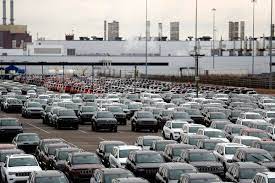The automobile industry in China has recently hit a weak spot, but it may be an intense spot. Car sales in China decreased for 9 months straight, with a 5.2% drop in March. The electric cars were displayed at the Shanghai Auto Show by international car giants and start-ups alike. For few in the industry, the new vehicles would really attract consumers, as a smartphone crossing. These buyers increasingly use Internet-linked services, especially in China, such as daily food supplies. There are flourishing so-called new energy cars, sales in the last year climbing 62%. Not only because of how powerful they are.
“Well, the key thing is smart and not new energy,” Fu Qiang—the president and co-founder of Aiways (the start-up for electric vehicles) said. Fu is CEO of the Volvo Cars China former president. The nine-month fall in car sales in the largest vehicle market in the world has worried many people that China’s financial system and its over 1 trillion wallets are declining substantially. In the last year, insecurity over the US-China spat and the attempts by Peking to decrease debt dependence on development caused investment, particularly in high-duty items like cars, to be challenging. Alan Kang, senior market analyst at the LMC Automotive, said that a sharp comparison with rapid growth in 2016 resulted in the majority of decreases in car sales in the past 2 years.
Similarly, the recent trade war of President Trump has forced Volvo Cars to move to South Carolina. Volvo is reportedly a Chinese manufacturer of automobiles in the United States. It was a long tradition when it decided to establish a division in South Carolina that produced cars for ships across the globe. However, Trump has changed America’s approach to trade policy before it was revealed last year.
